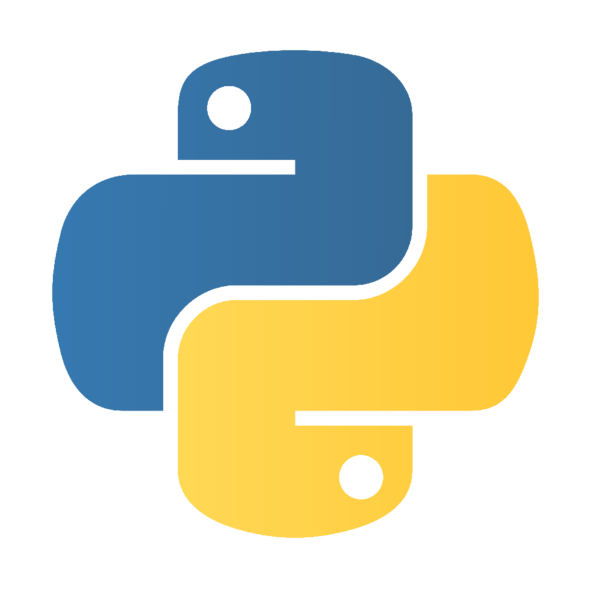
- Payment Options:
Subscription R2,500 pmSelf-paced R5,260
- Inlcudes:
- Exam Fee: No
- Labs: Yes
- Test Prep: Yes
- Mentor Support: Yes
Subscription Plan: This plan provides not only access to our extensive course catalog but also dedicated mentorship for content mastery and effective career planning. Please note, course completion is required before starting a new one, ensuring a solid grasp of material. The plan requires an initial R2,500 deposit, reflecting our commitment to quality education. You may cancel anytime with a month's notice. Start your learning journey today!
Self-paced: Unlock your learning potential with our one-time payment option. This plan offers you access to comprehensive training manuals and supplemental materials for a period of up to 12 months, empowering you to learn at your own pace. While this option does not include mentor support, our dedicated career advisors remain readily available to guide you. Make a single investment to revolutionize your learning experience and open doors to new possibilities.
Foundational Python for Data Science
The Python language has a rich history and has been widely used across various industries. Its applications span diverse fields such as web development, film, government, science, and business. For those interested in gaining hands-on experience in Python for Data Science, uCertify offers the course "Foundational Python for Data Science."
It's important to note that this course is not designed to teach Python for web development or system administration purposes. Instead, its focus is on equipping learners with the Python skills essential for Data Science. While it won't delve into the broader concepts of Data Science, the course provides a comprehensive understanding of Python's role in the domain.
The course structure includes interactive lessons with knowledge checks, quizzes, flashcards, and a glossary of terms. These resources aid in building a solid foundation in Python for Data Science, allowing students to embark on their Data Science learning journey with confidence.
Lessons 1: Introduction
Lessons 2: Introduction to Notebooks
- Running Python Statements
- Jupyter Notebooks
- Google Colab
- Summary
- Questions
Lessons 3: Fundamentals of Python
- Basic Types in Python
- Performing Basic Math Operations
- Using Classes and Objects with Dot Notation
- Summary
- Questions
Lessons 4: Sequences
- Shared Operations
- Lists and Tuples
- Strings
- Ranges
- Summary
- Questions
Lessons 5: Other Data Structures
- Dictionaries
- Sets
- Frozensets
- Summary
- Questions
Lessons 6: Execution Control
- Compound Statements
- if Statements
- while Loops
- for Loops
- break and continue Statements
- Summary
- Questions
Lessons 7: Functions
- Defining Functions
- Scope in Functions
- Decorators
- Anonymous Functions
- Summary
- Questions
Lessons 8: NumPy
- Installing and Importing NumPy
- Creating Arrays
- Indexing and Slicing
- Element-by-Element Operations
- Filtering Values
- Views Versus Copies
- Some Array Methods
- Broadcasting
- NumPy Math
- Summary
- Questions
Lessons 9: SciPy
- SciPy Overview
- The scipy.misc Submodule
- The scipy.special Submodule
- The scipy.stats Submodule
- Summary
- Questions
Lessons 10: Pandas
- About DataFrames
- Creating DataFrames
- Interacting with DataFrame Data
- Manipulating DataFrames
- Manipulating Data
- Interactive Display
- Summary
- Questions
Lessons 11: Visualization Libraries
- matplotlib
- Seaborn
- Plotly
- Bokeh
- Other Visualization Libraries
- Summary
- Questions
Lessons 12: Machine Learning Libraries
- Popular Machine Learning Libraries
- How Machine Learning Works
- Learning More About Scikit-learn
- Summary
- Questions
Lessons 13: Natural Language Toolkit
- NLTK Sample Texts
- Frequency Distributions
- Text Objects
- Classifying Text
- Summary
- Questions
Lessons 14: Functional Programming
- Introduction to Functional Programming
- List Comprehensions
- Generators
- Summary
- Questions
Lessons 15: Object-Oriented Programming
- Grouping State and Function
- Special Methods
- Inheritance
- Summary
- Questions
Lessons 16: Other Topics
- Sorting
- Reading and Writing Files
- datetime Objects
- Regular Expressions
- Summary
- Questions
Hands-on LAB Activities (Performance Labs)
Fundamentals of Python
- Computing Leaves of an Employee
- Calculating Expenses Using Multiple Statements
Sequences
- Performing Shared Operations
- Adding and Removing Items
- Performing Data Analysis
Other Data Structures
- Accessing, Adding, and Updating Data by Using Keys
- Performing Set Operations
- Using Frozensets
Execution Control
- Determining if a Person is Eligible to Vote
- Determining Average and Grades Using Scores of Subjects
- Computing the Factorial of a Number
- Displaying the Number of Transactions
Functions
- Accessing Library Data
- Using the lambda Function
NumPy
- Visualizing Data Using the reshape Method
- Computing Mathematical Data
- Performing Matrix Operations on NumPy Data
SciPy
- Executing Image Processing
- Performing Customer Analysis
Pandas
- Storing Employee Details
- Manipulating Employee Details
- Updating Student Data
Visualization Libraries
- Visualizing Survey Data
- Creating a Styling Plot
- Analyzing Statistical Data
- Visualizing Tips According to the Total Bill
Machine Learning Libraries
- Modifying Data Using Transformation
Natural Language Toolkit
- Finding the Frequency of Words
Functional Programming
- Modifying Outer Scope
- Changing Mutable Data
Object-Oriented Programming
- Using Inheritance
Other Topics
- Sorting Data
- Demonstrating Regular Expressions
Foundational Python for Data Science is an excellent career step due to its widespread relevance and demand across various industries. As an essential programming language in the field, mastering Python equips professionals with the ability to efficiently manipulate data, build predictive models, and extract valuable insights from complex datasets. Its user-friendly syntax and extensive libraries, like Pandas and NumPy, streamline data analysis tasks. Moreover, Python's versatility extends beyond data science, allowing practitioners to explore web development, automation, and more. Embracing Foundational Python for Data Science paves the way for rewarding career opportunities and empowers individuals to play.
Please contact us for any queries via phone or our contact form. We will be happy to answer your questions.
Ferndale,
2194 South Africa
Tel: +2711-781 8014 (Johannesburg)
+2721-020-0111 (Cape Town)
ZA
Jumping Bean Contact Form!